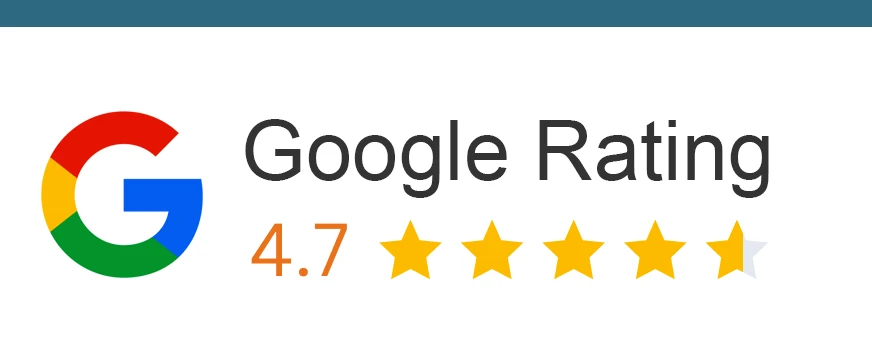Acceptance is often the biggest roadblock in the path towards successfully defusing debt. It’s nice to have someone to encourage you to change your circumstances. But is it wise to share your debt problems with your partner? Find out more in this article.
Dating can sometimes feel like walking on a minefield. You’re at the risk of stepping on a bomb each minute. Instilling a sense of trust in your partner and getting them to open up to you is a beautiful feeling indeed. But there are two sides to a coin. It won’t be long before you rose-tinted lens wears off and you see the person for who they really are. Are you willing to accept the reality if they’re willing to come clean on every aspect of their life? Even debt.
Debt comes as a part and parcel of life. We’ve all held the burden of debt at some point in our lives. As long as your debt is reasonable and not a result of impulsive spending, debt isn’t something you should be embarrassed by. Start by accepting the situation for what it is and then resolve to turn it around.
When starting your life with a special someone, you promise them honesty. But can you confide in them about your financial problems?
Maximise your options: Compare and apply for loans below with LoanTube
Apply Filters
Should you tell your partner about your pile of debt?
If debt were a piece of cake that you stole from the fridge last night to curb your hunger, things would be easier. But it isn’t. Sooner or later, your partner will eventually know about your debt problem. What if you both agree to financially contribute to the relationship jointly, and they notice you coming up with new excuses to avoid it? Or what if they read a legal notice from your lender? Isn’t that going to hurt more?
Not only is this financial infidelity, but it is also a misuse of someone’s trust. It won’t be long before this changes their perception of you and they start to resent the relationship. Thus, you’ll be better off confiding in your partner and discussing your financial issues with them, sooner than later.
How to break the news to them?
Surprises are nice, but not in relationships. If it’s something as big as a huge pile of debt, you ought to own up and confess to your partner. Pretending or living in denial about your financial situation, is a recipe for disaster.
Now if you bring up this conversation, there can be two outcomes. Debt can stir up some negative feelings, and to some extent, cause you two to drift apart. However, if you and your partner are in a serious relationship, they will put in the effort to understand your situation. This will help you both come out of this turmoil, stronger than ever!
You will have to share your problems with the one you’ll share your life with. What matters the most is how you bring this conversation up. Here are some tips on how to break the news of your debt problem to your partner, without stressing them out:
- Crunch the numbers: Gather all the facts and figures for your own understanding, before trying to explain it to your partner. Get some clarity on your loans, outstanding credit card balance, payable interests, loan term, and repayment dates. This activity is a great way to kickstart your plan of defusing debt because it gives you more control over the situation. Besides, once you gain a better insight into your financial standing, you’ll find it easier to explain the problem to your partner.
- Time it well: You don’t have to open up about your financial problems on every first date. Debt isn’t the ideal topic to discuss on your first date. This kind of confidence develops when you’re genuinely invested in a relationship. But this timeline can be vague. You could perhaps wait until you hit the 6-month mark, till you’re both on the same page. For instance, if you’re planning on moving in together, you’ll both have to equally invest some money into the plan. If you tell them about your debt problem beforehand, they’d be financially cooperative.
- Gently break the news: The conversation you’re about to have with your partner is vital, but also scary. People look forward to weekends to loosen up and rejuvenate. So choose a weeknight to discuss your debt problem with your partner. Starting the conversation with a positive foundation can help soften the blow. Perhaps say what you feel, what’s concerning you, and what needs to be done about it.
- Contextualize it: Adding context to your conversation can help your partner understand your circumstances better. This will allow them to reciprocate better. Once you begin the conversation, explain the circumstance of your debt to your partner. What is it that got you into debt and where did it all begin? Were you paying for school independently? Or were formerly a spendthrift? Explain the constituents of your debt.
- Establish some accountability: Once your partner learns you’re in debt, they’ll want some reassurance that you’re doing your bit to overcome the problems. Establish some trust and tell them about your plan of dealing with the problem. If you’re consulting a financial advisor, let them know. They’ll be happy to know if you’re taking a step in the right direction.
- Tell them if you’re making progress: Being on a debt solutions service is the first step towards progress. Even if you’re making minimum monthly repayments, it’s a positive sign. This will be recorded on your credit report and eventually, ease the damage.
- Ask them to help you with your goals: Is there something that your partner can help with? If you’re sharing household expenses, can cutting back on non-essential items help? Reducing the number of night outs and dinner dates and settling for in house dates can be of great help. Have an open discussion about how they can contribute, and it doesn’t have to be a financial contribution.
- Give each other time to process things: Debt is a solemn topic of discussion. You can’t expect your partner to play cool right after you drop the bomb. Similarly, they can’t expect you to have an immediate plan in place. Take some time to process the news. If need be, take a day’s gap before returning to the conversation. Time and space will help you maintain clear headspace.
Signs that your partner won’t open up about financial problems
Your partner doesn’t discuss finances with you and gets agitated when you bring something up. Putting two and two together isn’t rocket science. These may be warning signs about their financial problem. Take a look at some of these red flags:
- Your partner doesn’t want to split the bill on an outing.
- Your partner lies about money (financial worth, debt) or hides cash.
- They straight-up refuse to discuss finances.
- There are no savings or assets despite years of work.
- Your partner is in the habit of borrowing from you or their friends or family.
- They can’t keep a job for long.
- They lead an over-the-top lifestyle.
- Your partner fails to keep up with their repayments.
- They try to manipulate you into changing your financial plans.
Watch out for these flags and don’t invest yourself into a person who has a toxic relationship with money. Dating someone with debt isn’t the problem, but dating a person who doesn’t learn from their mistakes, is.
In conclusion…
Debt is inevitable. But debt cannot take away your virtue. It certainly cannot change how loving and caring of a partner you are. Even if you did have a spending problem, confiding in your partner and asking for encouragement to meet your goal will only bring you closer to them. They’ll be happy to do every little thing that they can to help you get back on your feet.
Keeping up with repayments is essential to progress towards a debt-free life. But dealing with multiple loans can be daunting. If you’re struggling to keep up with the payments, consider a personal loan to consolidate your debt. This will help you organize your debt, bringing you a step closer to your goal. Visit LoanTube to compare rate locked loans from multiple lenders to find your ideal loan.


